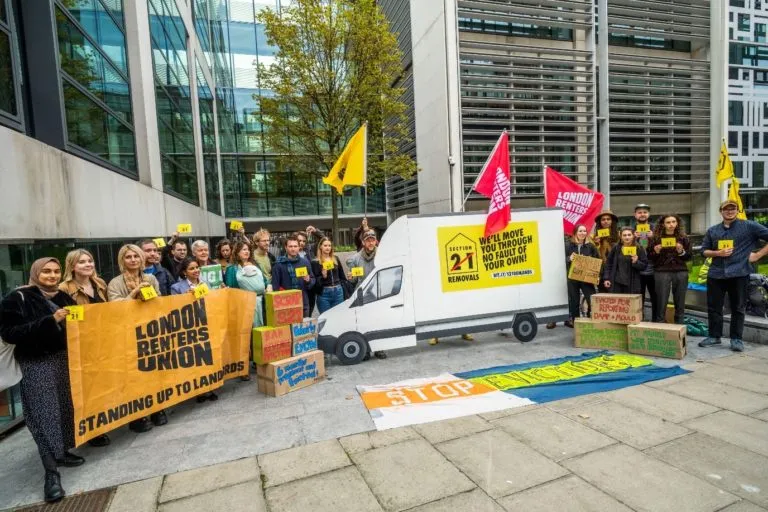An end to no-fault evictions – what’s next?
Published: by Ruth Ehrlich

Over six months ago, the government promised to make renting fairer for everyone – they committed to scrapping section 21, ending no-fault evictions once and for all. This long-overdue reform will transform the lives of private renters, particularly those who are worst off, and rebalance the dysfunctional relationship too many landlords have with their tenants.
With a General Election looming, renters will be looking for manifesto commitments to end no-fault evictions from all major parties. For all the parties, the first step is to listen to the thousands of renters who completed their consultation, ‘A new deal for renting’.
We’ve been demanding changes to make renting fairer for everyone for a long time now – and Shelter campaigners have been key to keeping this pressure up over the past four months.
Giving renters a voice
Our priority was to ensure that renters’ voices were heard in this consultation, so we created a tool which would allow people to respond to the questions we thought were the most important. We were thrilled to see some famous faces promoting our survey, and even more thrilled to see widespread support coming through on social media. It showed how much many people care about fixing our broken private rented system.
Thousands of Shelter supporters made their voices heard using our survey. We’re really pleased with the impact Shelter supporters made. With so many campaigners speaking out in favour of scrapping section 21, we know it’s on the political radar.
A united front
But we weren’t doing it alone. Across the housing sector, organisations were working together to mobilise renters and ensure their voices are listened to. When Generation Rent and the End Unfair Evictions coalition pitched up outside MHCLG’s office, we made sure we were there to support them and show a united front.
Generation Rent also bought to life the real cost of having to move house, with newspapers reporting that it costs private renters £70 million a year to move. While Shelter’s CEO Polly Neate further highlighted the risk that Conservatives will be taking if they chose to gamble and U-turn on their promise to make renting fairer.

Making a stand
Alongside our campaign, we also submitted a detailed written response to the government’s consultation. Every day at Shelter, we see private renters across the country struggling, so we were able to show how those at the sharpest end of the housing emergency will be affected by government’s proposed changes. Here are some key reflections:
The good
The people we support will benefit enormously from the abolition of no-fault evictions. As one of Shelter’s advisers put it, ‘we see numerous clients with families who lose their properties because of “no fault” rules…usually because the landlord wants to increase the rent or because the tenant has complained about disrepair’. Ending Section 21 will protect renters from revenge eviction once and for all – saving families from the trauma of homelessness and years in temporary accommodation.
The bad
The government suggested that alongside making it impossible for landlords to evict renters for no reason, they would keep fixed term tenancies. We are opposed to this because we see the impact that being locked in has on renters every day. In relationship breakdowns properties can become unaffordable, forcing the remaining tenant into arrears and risking a bad reference which can prevent them from obtaining another private rented property.
Locking renters in to tenancies that may become unsuitable sets people up to fail and takes away their choice to make sensible decisions for their household. That’s why we’ve called on government to introduce open-ended tenancies and genuine security for those living in the private rented sector.
The ugly
The government has proposed drastic changes to the mandatory ground for rent arrears, ground 8, which forces a judge to give the landlord possession of the property regardless of why the tenant has accrued arrears. This change would be devastating. Factors outside of their control, like delays in the benefits system, financial abuse and zero-hours contracts and precarious employment can all lead to arrears accruing quickly. For example, these proposed changes could see people losing their homes because of the government-imposed five-week wait when people apply for Universal Credit – and we don’t think that’s right.
What next?
Renters are a powerful political force, and a general election is maybe on its way. A commitment to ending section 21 could be the deciding factor in which party they vote for. Our supporters have made it clear to government that we’re watching their next moves – and we urge them to make a clear commitment to following through with legislation to end no-fault evictions and give private renters the stability they need, once and for all.